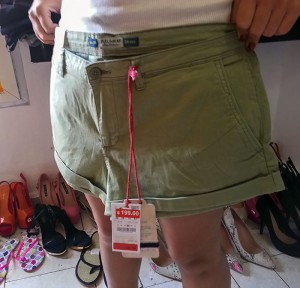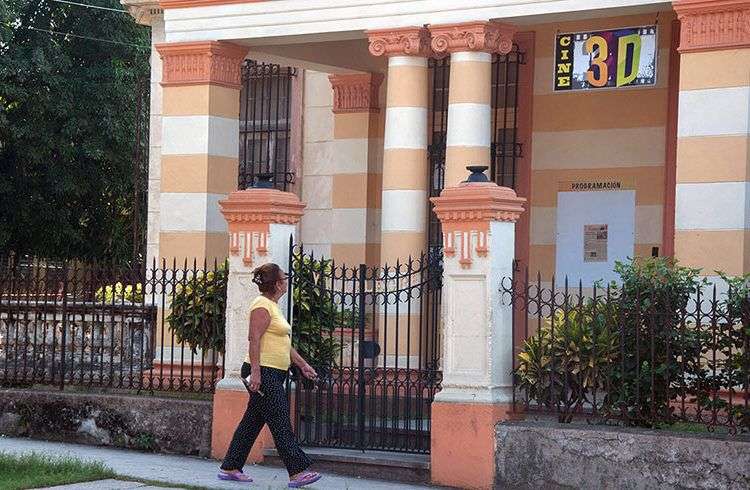The prohibition of 3D cinemas and shops selling clothes has been among the most unpopular measures taken by the government because it made clothing more expensive for Cubans and eliminated the only entertainment in neighborhoods. However, in most cases the effect has been purely formal; businesses continue to operate in secrecy, without paying taxes or license. Our team reached out these underground self-employed.
“It is true that going to a 3D movie but you cannot tell anyone because then the government closes it and the neighborhood children will be left without the only fun we have,” admits one 10 year old Cuban girl.
Everyone in the neighborhood, from the smallest to the Party members, knows where the cinema is and knows that these were banned by a fulminating decree last year. However, as in the Fuenteovejuna play, no neighbor denounces the guilty one.
The members of the Committee for the defense of the Revolution (CDR by its Spanish acronym) look the other way because, well, “cinema owners are revolutionary people who never hurt anyone.” Meanwhile, the children are taught to lie, trained in the art of simulation, a lesson that they surely will not forget.
And indeed 3D owners are people sympathetic of the Revolution; one of them even works in the national government. When they realize we already know they accept, resigned, to talk to us without cameras or microphones.
They tell us that they do not harm anyone playing movies to neighbors; they are against the ban and say that if this is removed they will apply again for the license pay taxes “to be within the law and live without fear.”
The investment was great for a family who obviously does not have many financial resources. They were more than $ 2000 to set up a room, buy a 3D TV, dozens of movies, air conditioning and glasses.
The films are sent by family from France and Italy, the entry costs is 1 CUC and includes a little package of popcorn and a capacity of 7 persons, so capital recovery is very slow.
“Although we do not like doing illegal things they have left us no choice because all our money was invested”, they say. Fear passes them and they ask me to write it all for the “leadership of the country know what we the revolutionaries think.”
Zara in the catacombs

Clothing stores survive the ban hidden in the last room of the house and with the support of neighbors who know about it and remain silent / Photo: Raquel Perez.
Along with the ban of 3D theaters came the selling imported clothing. Following the opening of self-employment, Havana was full of shops where merchandise brought from Ecuador, Miami, Panama, Belize, Spain and even Russia was sold.
On January 1, 2014 … they all disappeared from view. They went underground, moving from the porch to the last room of the house. They do not need publicity; “Radio Bemba” passes information Cuban to Cuban as quickly.
Thus we arrive at a store that sells clothing and shoes by Zara, Bershka and Mango. We introduce ourselves as buyers and we had to wait in the balcony for other customers to come out. They are open from 1.00 PM to 7.00 PM and there are people constantly buying.
The clothes are in one of the bedrooms of the apartment, you have to cross the room, the kitchen, pass the bathroom to finally get to the store. The clothes are hung on

sticks held between two chairs, one bent on shelves and shoes on the floor.
I note that the merchandise: shirts, blouses, pants, skirts, shorts, swimwear, shoes etc. have the same prices as in Spain and they confirm to me they bring them from there, they are garments purchased during the clearance sales.
The clerks tell me that sales have not fallen after the ban and assure me they will not fall now with the new customs laws, “may have to sell a little more expensive because those who bring them must pay more people to pass them” .
They tell me that even if they were obliged to raise prices “we would still offering best clothing than the stores state and people know that.” Certainly, all these brands are well known but all its boutiques in Cuba are in the catacombs.










